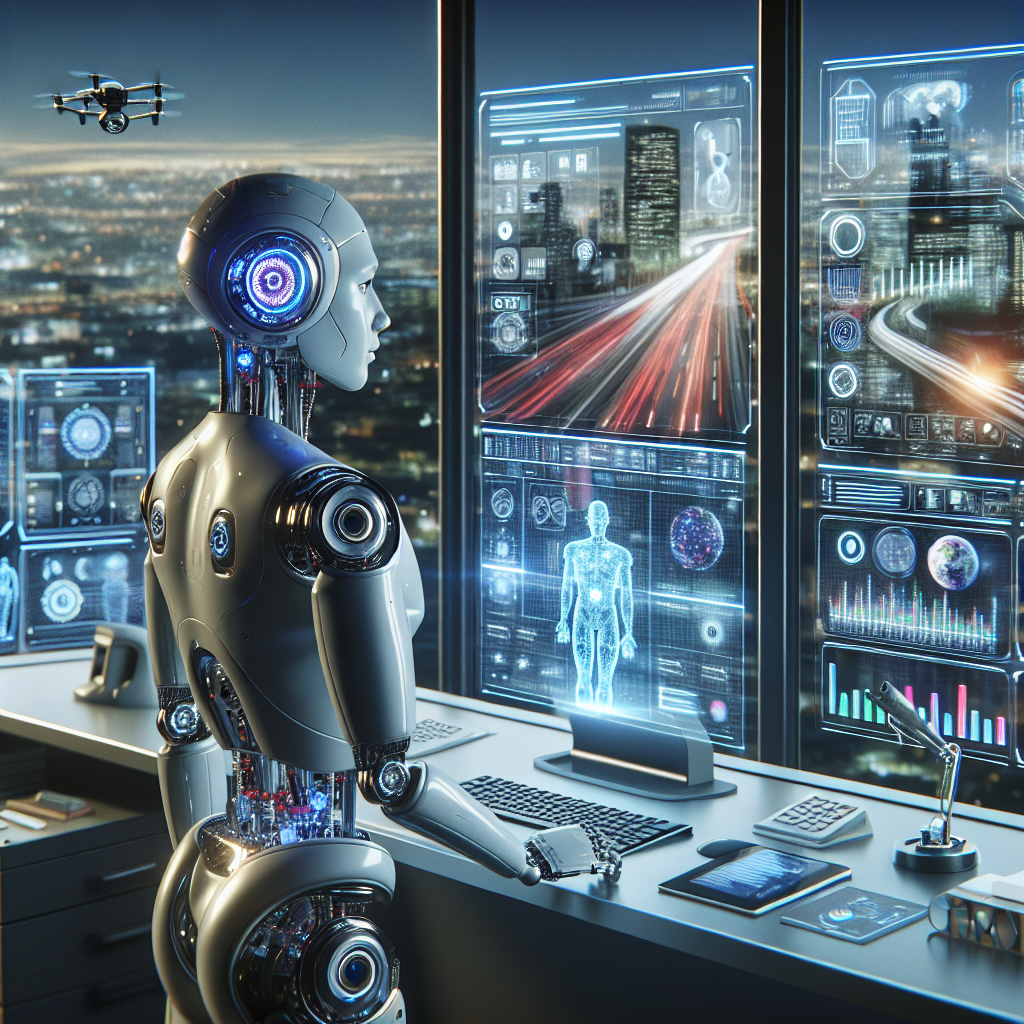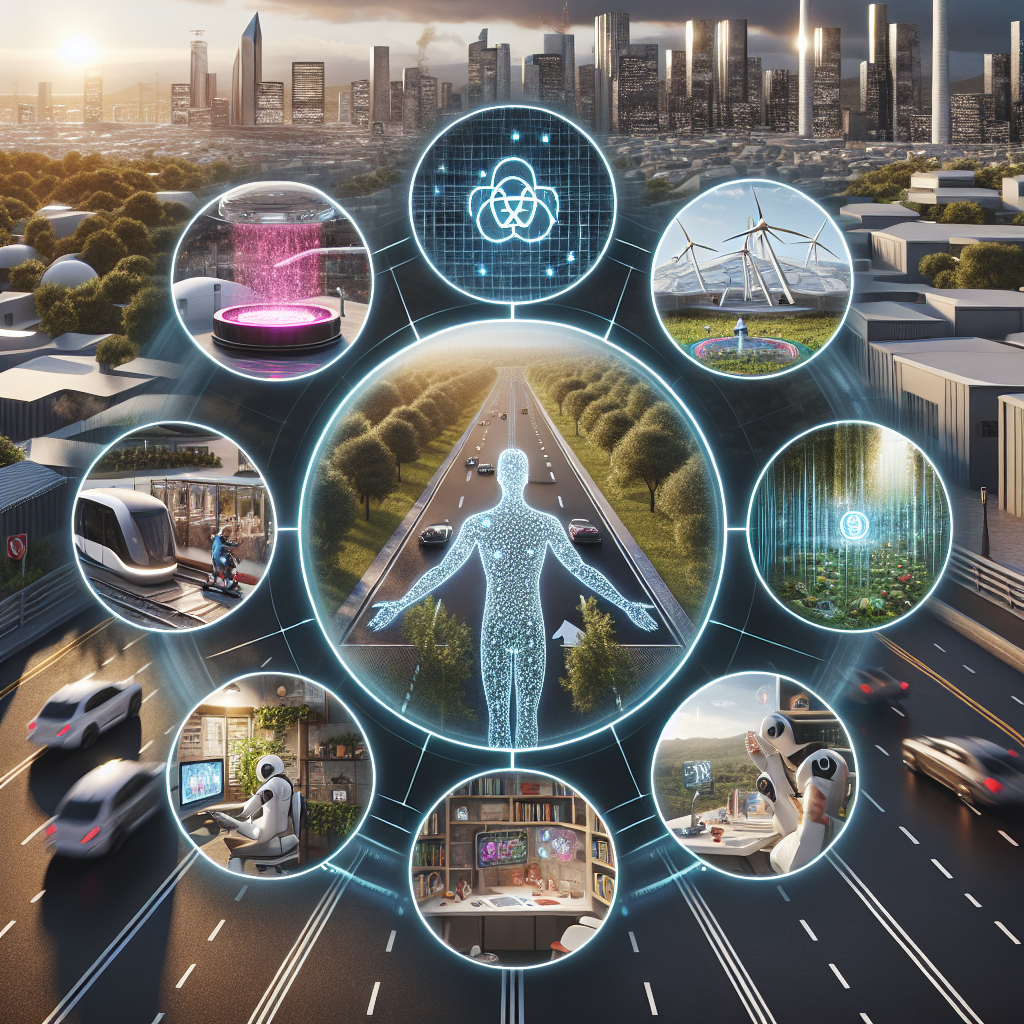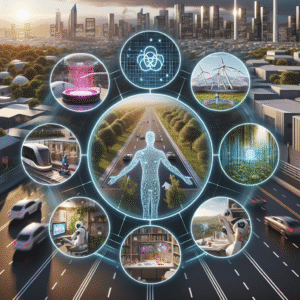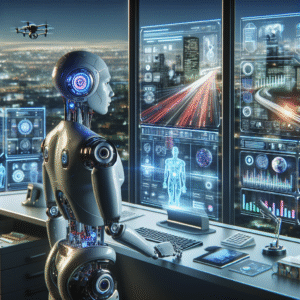Unlocking AI: The Future of Automation in 2025
Embracing the Rise of AI Automation in 2025
The pace of technological progress is accelerating, and by 2025, AI automation will become a transformative force across industries. Businesses are already leveraging artificial intelligence tools to streamline operations, enhance decision-making, and boost productivity. As AI automation evolves, it offers unprecedented opportunities for organizations to reimagine workflows, optimize resource usage, and create smarter, more agile systems. Understanding the future landscape of AI automation helps professionals prepare for a world where intelligent machines not only augment human abilities but also drive innovations that reshape daily life and work.
Key Trends Shaping AI Automation in the Near Future
The advancements in AI automation are not happening in isolation—they are driven by broader technology trends that enhance capabilities and accessibility.
Expansion of Machine Learning and Deep Learning Models
Machine learning models continue to grow more sophisticated, enabling AI systems to learn from vast datasets with limited human input. In 2025, deep learning architectures will improve in both accuracy and efficiency, facilitating automation of complex cognitive tasks such as natural language understanding, predictive analytics, and image recognition. This progression means AI automation will handle more intricate processes that require adaptive learning rather than fixed rules.
Growing Integration with Internet of Things (IoT)
The fusion of AI automation with IoT devices will create intelligent ecosystems. By 2025, interconnected devices deployed in homes, factories, and urban infrastructure will generate real-time data streams that AI can analyze to automate responses instantly. This synergy leads to smarter manufacturing lines, energy management systems, and personalized customer experiences, highlighting the power of automation embedded at every system layer.
Increased Adoption of Edge AI
Processing data locally on edge devices instead of relying exclusively on cloud computing will become widespread. Edge AI enables faster decision-making and reduces bandwidth needs, making AI automation more practical in time-sensitive applications such as autonomous vehicles, healthcare monitoring, and industrial robotics.
Practical Applications of AI Automation Across Industries
AI automation is no longer confined to tech firms; its application spans various sectors, delivering tangible benefits.
Healthcare Transformation
AI automation is revolutionizing healthcare workflows—from automating medical imaging diagnostics to managing patient records effectively. Robots equipped with AI can assist in surgeries or routine tasks, reducing human error and enabling doctors to focus on complex care. Predictive analytics powered by AI also anticipate patient deterioration, allowing proactive interventions.
Manufacturing and Supply Chain Optimization
Factories are embracing AI automation to streamline production lines and supply chains. Automated quality control systems use computer vision to detect defects faster. AI-driven demand forecasting helps manufacturers optimize inventory, reducing waste and fulfilling orders promptly. Collaborative robots (cobots) work safely alongside humans, enhancing flexibility and reducing operational costs.
Customer Service and Marketing Enhancement
AI-powered chatbots and virtual assistants handle a growing portion of customer interactions with 24/7 availability. Automated sentiment analysis enables companies to tailor marketing campaigns dynamically, improving conversion rates. By analyzing customer behavior, AI automation personalizes recommendations, creating a more engaging user experience.
How Businesses Can Prepare for AI Automation Integration
Introducing AI automation involves thoughtful planning and strategic steps to maximize value.
Assess Current Processes for Automation Potential
Identify repetitive, data-intensive tasks that could benefit from AI automation. Processes with high volumes of rules-based decision-making or pattern recognition are often prime candidates.
Invest in Workforce Training and Change Management
Preparing employees to work alongside AI systems is crucial. Upskilling on AI tools and fostering a culture of innovation encourages smoother adoption and harnesses employees’ creativity.
Choose Scalable and Secure AI Solutions
Select platforms that grow with your business needs and comply with privacy and security standards. Automation initiatives should integrate seamlessly with existing IT infrastructure to avoid disruption.
Ethical and Social Considerations in AI Automation
While AI automation offers vast benefits, it also raises important ethical questions.
Ensuring Fairness and Transparency
Automated systems must avoid biases that lead to unfair treatment or discrimination. Transparency about how AI makes decisions builds user trust and accountability.
Addressing Job Displacement
Automation will alter the workforce landscape, potentially displacing some roles while creating new ones. Proactive policies around retraining and social safety nets will support affected workers.
The Road Ahead: Opportunities and Challenges
AI automation holds the promise of elevated efficiency, innovation, and problem-solving capabilities in 2025 and beyond. However, realizing its full potential requires overcoming technical hurdles like interpretability of complex AI models, data quality issues, and integration complexity.
Strategically embracing AI automation positions businesses to outperform competitors by optimizing operations and unlocking new revenue streams. This forward-looking approach fuels long-term growth and resilience in an increasingly digital economy.
To stay informed on the latest AI automation insights and breakthroughs, visit authoritative resources like the [AI section at MIT Technology Review](https://www.technologyreview.com/ai/).
Elevate Your Strategy with AI Automation Today
Unlocking the future of automation means beginning the journey now. By exploring how AI automation can enhance your business processes and investing in the right tools and training, you’ll be ready to capitalize on emerging opportunities in 2025.
Don’t wait for change to happen—embrace AI automation as a competitive advantage. For personalized guidance or to discuss implementing AI solutions tailored to your needs, contact us at khmuhtadin.com. Start shaping your future with AI today.







Post Comment